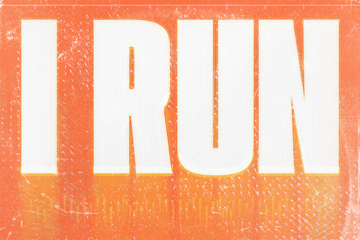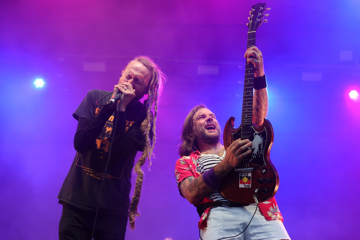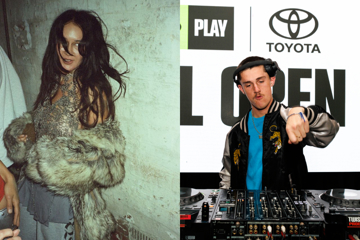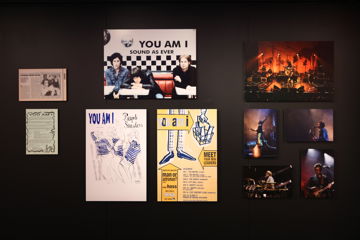Get Your Phone Out And Risk Ejection From Their Gig
"If there's 6,000 people in the venue and six people got kicked out because they took out their phones and were blatantly just blocking the person behind them... [It] seemed like in the range of normal [numbers], you know?"

From Disturbed vocalist David Draiman admonishing a fan for texting during their performance to Slipknot's Corey Taylor slapping a mobile phone out of a punter's hand, several artists have taken a public stance against audience members' use of devices at gigs. Taking matters further, last year each show on A Perfect Circle's North American arena tour reportedly enforced a strict 'no photos and videos' policy, with ejection from the venue threatened. Allegedly, more than 60 people were forcibly removed from one show for taking photos during the band's set.
However, while the likes of Draiman have later shown contrition, A Perfect Circle are seemingly standing firm with these restrictions. "We asked people to respectfully not video the shows and put your phones away for the 90 minutes we're going to be with you during the show," guitarist Billy Howerdel explains to The Music from Los Angeles. "It's clearly posted all over the arena and the venue, and there's a verbal announcement that happens twice. You ever go to a play or a movie? If you've ever been to a play or a movie, it's kind of similar: you don't take out your phone and start filming, and let the people behind you stare into your screen. It seems pretty straightforward and easy enough," he laughs. "It's kind of as simple as it is."
Did the backlash surprise him at all? "I guess I thought [we] would get more backlash from it. The support from it was a little bit surprising, just because there was, like, one story that seemed to get out there. At one of our gigs, I think the promoter or someone from the building did an interview and gave some big number of people ejected. From that point on, we got asked about it a lot. So I'd ask security, 'How many ejections today?' You know, from night to night, and it wasn't that many people. There were more people being ejected for being inebriated, getting in a fight or passing out or something like that. It was just within the realm of - if there's 6,000 people in the venue and six people got kicked out because they took out their phones and were blatantly just blocking the person behind them... [It] seemed like in the range of normal [numbers], you know?"
The policy may have been a divisive move that infuriated many, however it did ultimately control the message; ensuring those who weren't present at said gigs' initial encounter with material from new album Eat The Elephant - their first LP in 14 years following covers effort Emotive - was via the format the US rockers intended and not a low-quality fan video recording.
Don't miss a beat with our FREE daily newsletter
On the new record, Howerdel remains the songwriting nucleus alongside enigmatic Tool vocalist Maynard James Keenan. The axeman says their working relationship has evolved somewhat during the past two decades. "[It's] similar in the way that I'll have an idea or a song - sometimes it's quite fleshed-out, sometimes not - send it to him, see if he responds, puts lyrics or a melody first, then I get it back and chew on it from there; kind of ping-pong it back and forth. On the first record he kind of sang to a lot of the songs that were there and on the second record [2003's] Thirteenth Step, [there] was a little bit more interaction.
"This time Maynard had more input into what he was looking for to kind of tailor the music around what he had in mind. The difference being [that] this time I really saw myself as trying to be in service to getting the best performance out of Maynard possible. Instead of, 'Well, this is a song I wrote and that's just the way it is'."
Sporadic A Perfect Circle touring aside, during the band's considerable downtime Howerdel launched solo endeavour Ashes Divide and collaborated on independent film D-Love while Keenan engaged in the experimental Puscifer project. Greg Edwards (Failure) will also temporarily substitute for guitarist James Iha on some of this year's shows due to Iha's commitments with the reunited Smashing Pumpkins.
In the meantime, the industry that greets the release of Eat The Elephant is almost unrecognisable compared to when the group issued mega-selling debut Mer de Noms in 2000. "As far as how things are sold and how people consume them, I guess I just don't think that much about it; especially during the creation process," Howerdel says. "I didn't want that to change the way we made music."
He does express reservations for the next generation of acts and the ability to make a living from their art, though. "That's the bigger concern. We all have self-preservation in mind, but it's thinking about a young band that's potentially got a lot to say... Probably the worst part of that is a band like, say, a Genesis or Pink Floyd. How many songs did it take before they could make a living and get the widespread recognition by making the record that defined them? It takes a while and unfortunately a lot of bands aren't going to have that unless something drastically changes.
"A lot of people have a lot of bad things to say about record companies and for good reason sometimes. But they really were a support system, a partnership to let someone nurture, grow and incubate into being a great artist and, yeah! You take chances on some that don't work out. But it is a scary thought to think, like... There's great new music out there, there's no doubt. But the band that maybe needed to marinate on the sound for a little bit longer might not have the chance, or they just have to go get a day job and they give it up altogether. It's a scary thought for the future - not scary, just a sad thought."







